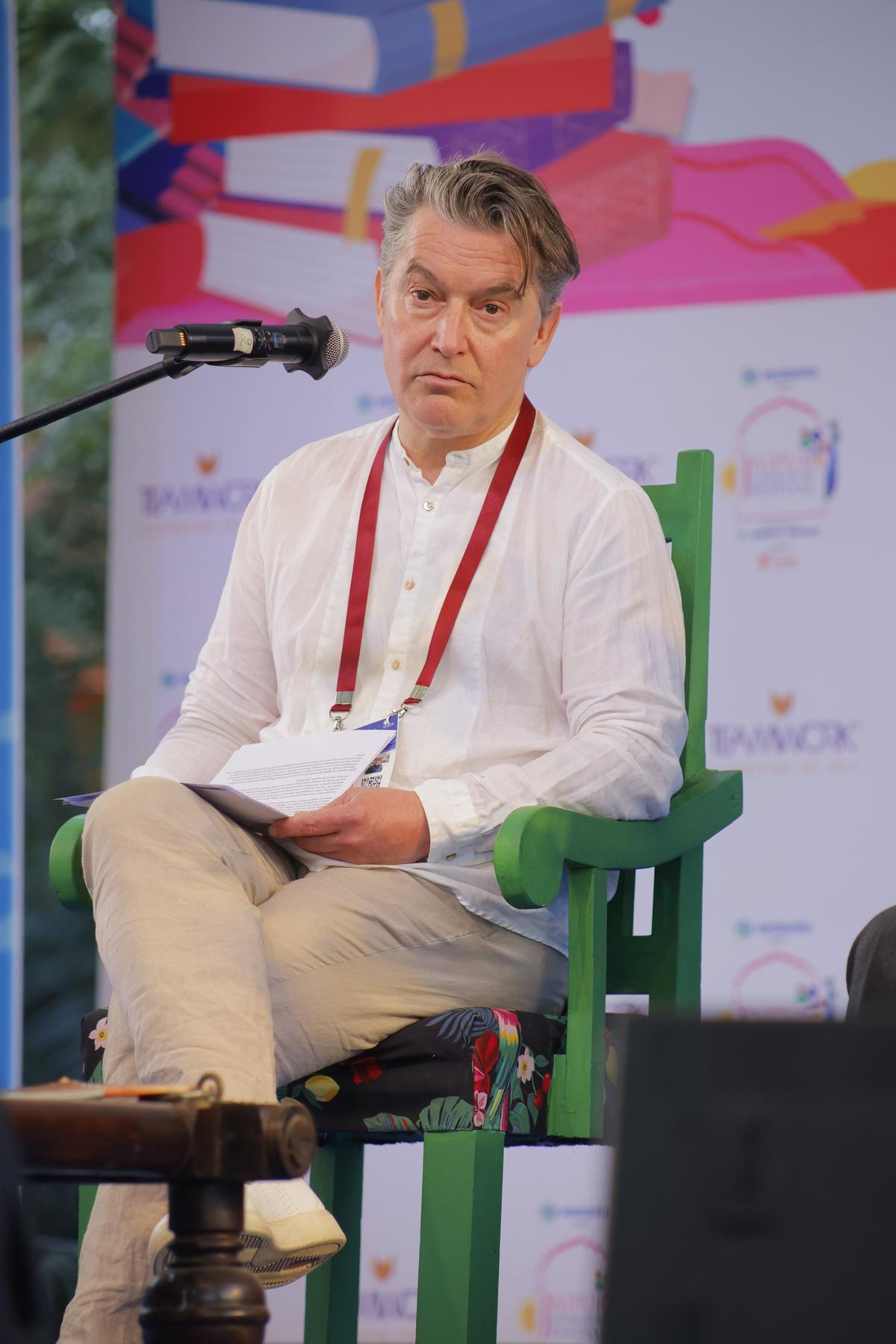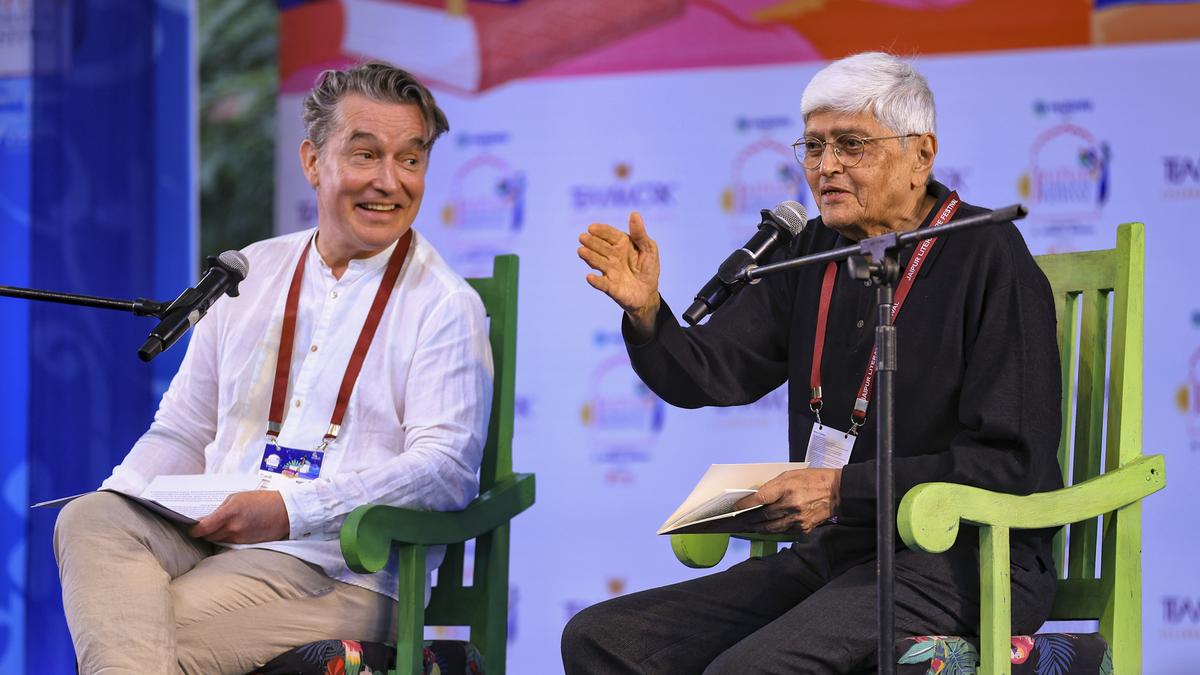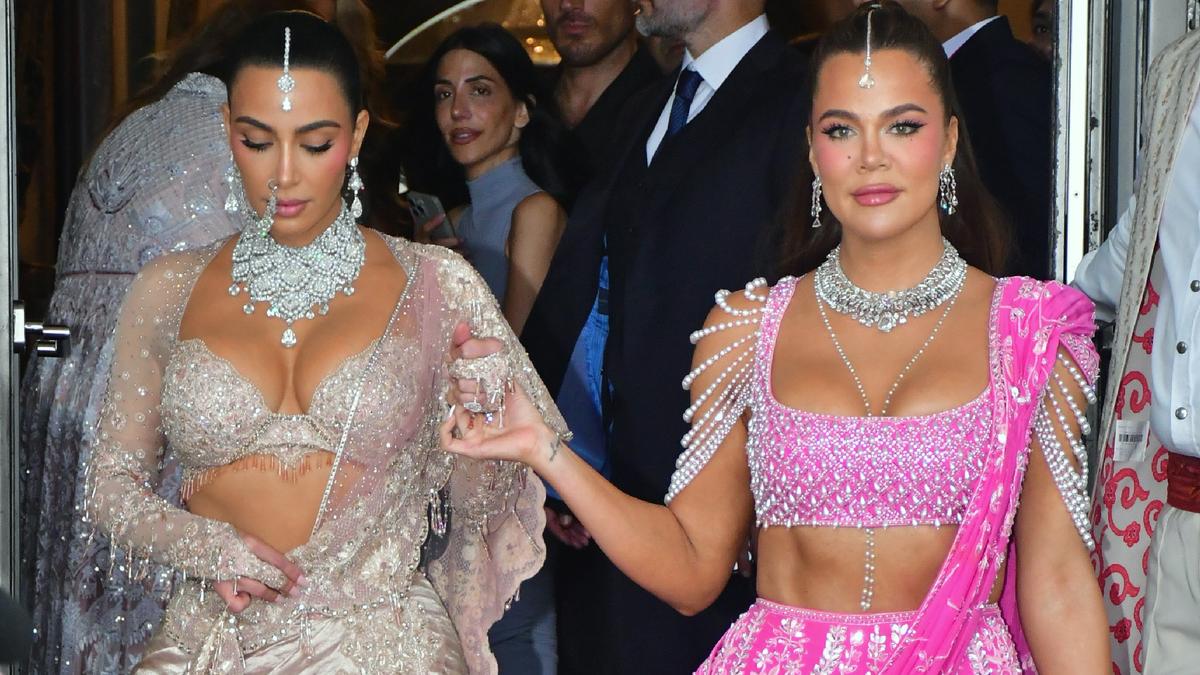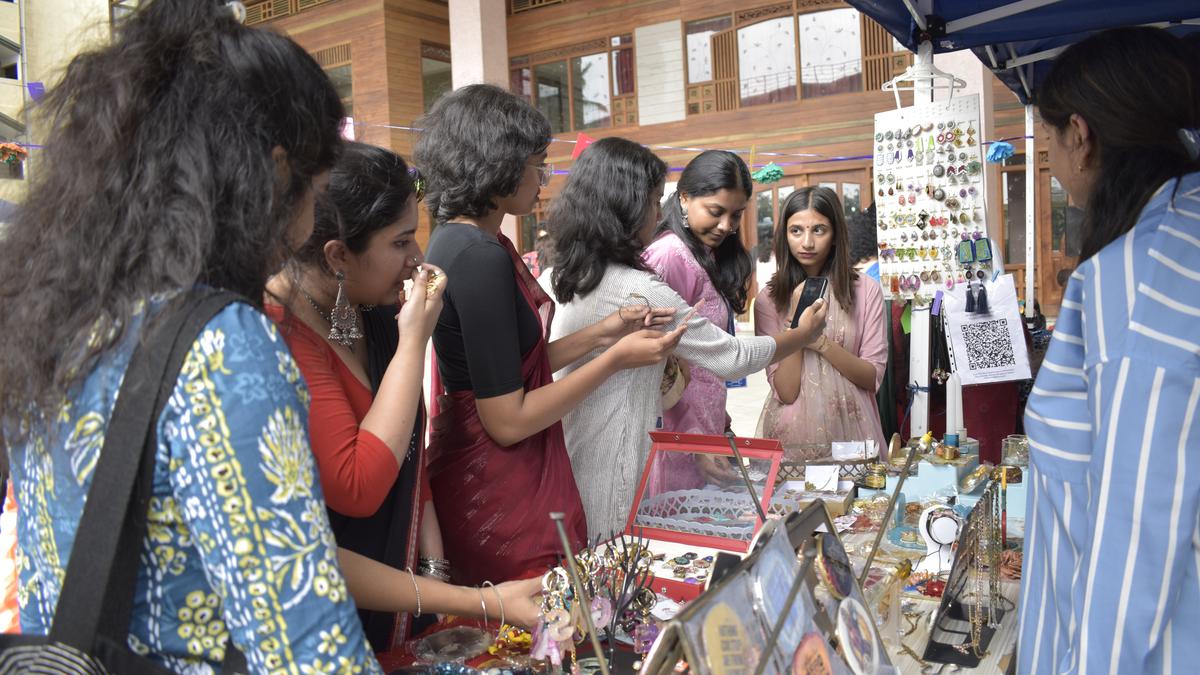Gopalkrishna Gandhi and Daniil Tolstoy at the Jaipur Literature Festival
| Photo Credit: PTI
It’s not every day that you bump into a Tolstoy in India. At this year’s Jaipur Literature Festival, as I wait to check into the hotel, a stranger greets me with a warm smile. “Hi, I am Daniil Tolstoy,” he says. He had flown in from Sweden, where he lives. As we catch up at the five-day programme, I learn that Daniil is the great-grandson of Lev Nikolayevich Tolstoy, the Russian literary and cultural icon (referred to in English as Leo Tolstoy), who is celebrated in India for his literature and his ties with Mahatma Gandhi.
Being a part of Czarist Russia, the Tolstoy family left the country in 1917, following the Bolshevik revolution, when Czar Nicholas II was eliminated along with his family. While Lev himself had died in 1910, Daniil’s grandfather and his family, including Daniil’s father Nikita Tolstoy, left for Sweden. “My mother’s family is Swedish. They originally came from Germany with the industrialisation of Sweden in the early 1800s and started forestry operations,” he shares.
The Tolstoys quickly assimilated into Sweden, but they kept up their Russian family ties. Daniil regularly visited Russia, until the Russia-Ukraine war erupted in February 2022. “Travel to Russia was complicated by the war,” says Daniil, who like his great-grandfather, believes in non-violence. “He believed in living a simple life, supported by one’s labour. Slightly inspired by that, I decided to start an organic farm near the old family estate in Yasnaya Polyana [about 160 km south of Moscow], and I did that until the war started when it became too complicated to run it,” says Daniil.
Gandhi, Lev and a Buddhist monk
India’s link with the Tolstoy family can be traced to at least 1909 when Mahatma Gandhi, then fighting a battle for ending racial discrimination against the Africans and Indians in South Africa, exchanged a number of letters with Lev. The letters came during the last year of Lev’s life, and Gandhi described himself as a follower of his commitment to non-violence.
Daniil says that long before his letters to Gandhi, Lev was influenced by an Indian Buddhist monk whom he had encountered in Kazan, in western Russia. “He was perhaps 17 when he met this monk.” He recounts that the monk was looted of his belongings by bandits, but he had refused to meet violence with violence. “This left an impression on young Lev.”

Daniil Tolstoy
Gandhi — often described as the ‘Hindu Tolstoy’ — returned to India in January 1915, having earned a name internationally for his non-violent resistance against South African apartheid. After World War II, with the advent of the Cold War, Russia would emerge as a Communist superpower. The nuclear shadow of the Soviet Union was not Tolstoyian, but the two countries have maintained close relations throughout, down to the current rule by President Vladimir Putin.
India can help to guide the world
Daniil, who held a discussion with Gopalkrishna Gandhi, Mahatma Gandhi’s grandson, at the literature festival, believes that the war with Ukraine could have been avoided. “I think things were mishandled by both parties, but Russia should not have been provoked into a war. Moscow should have found a solution through diplomatic means.”
The Buddhist link that inspired Lev early in his life is maintained by Daniil’s mother, who practices it. “She became interested in Buddhist ideas when she was young, and was quite active in spreading them in Sweden and across Europe. In fact, the Dalai Lama visited our country house in the 70s and asked my mother to help in establishing Buddhist centres in Sweden.”
In keeping with his India focus, he feels India needs to do more to live up to its reputation as the home to Gandhi and Buddha. “India is already of great importance, but its role on the international stage can help to guide the world in the right direction.”
Enduring popularity
“Russian classic literature continues to have a strong presence in India, being a throwback market, particularly in cities where there is a deep appreciation for classical works and translations,” says Aakash Gupta, managing director of Crossword Bookstores. Leo Tolstoy and other renowned authors such as Anton Chekhov and Alexander Pushkin have maintained their stature as monumental figures in world literature. “Another significant factor contributing to the ongoing popularity of Russian classics is the rising trend of book collecting. Beautifully bound editions, often crafted in hardcover or leather, have become highly sought after by collectors,” says Gupta, adding that in terms of sales, they sell “multiple hundreds of Tolstoy’s popular books like War and Peace, Anna Karenina and his short stories”.
At New Delhi’s The Bookstore too, Tolstoy sells all the time. “While Anna Karenina is the most popular, War and Peace and his short stories sell as well. I can’t speak for earlier, but since the pandemic, we sell one copy of Anna Karenina a month, at least,” says a spokesperson.
Published – March 07, 2025 01:50 pm IST






